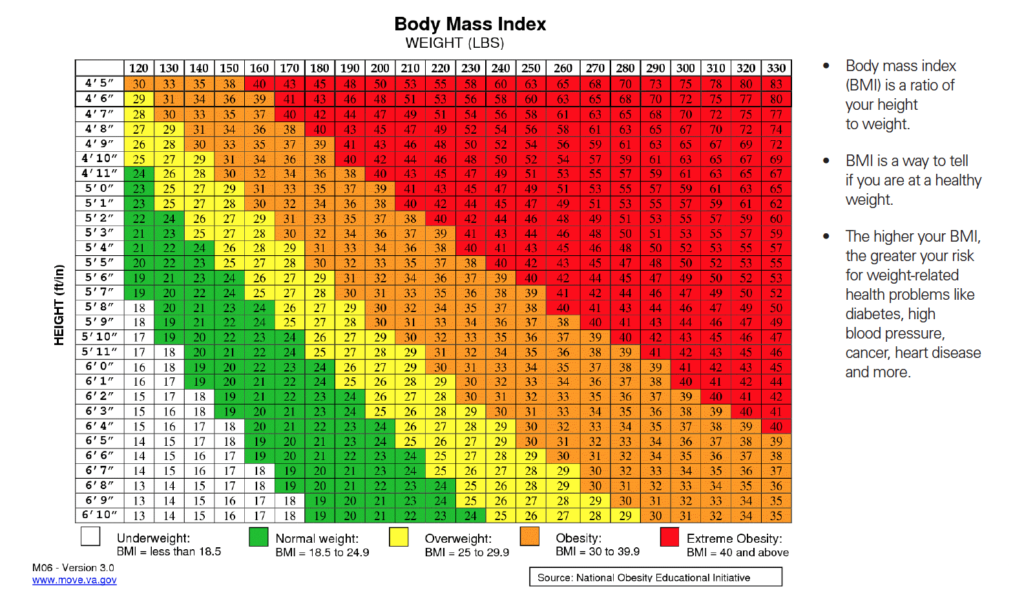Body Mass Index: Calculations, and Health Implications

Share This Post
Body Mass Index (BMI)
Body Mass Index (BMI) is crucial in gauging an individual’s body weight about their height. This numerical value categorizes individuals into different weight types and serves as a screening tool for potential health risks. In this comprehensive guide, we delve into the intricacies of BMI, its significance, how it’s calculated, its limitations, and more to provide a complete understanding of this metric.
What is Body Mass Index (BMI)?
BMI is a numerical measure derived from an individual’s weight and height. It’s a widely accepted tool to evaluate body fat and categorize individuals into different weight groups, offering a quick assessment of potential health risks.
What is BMI Used For?
BMI serves multiple purposes:
- Diagnosing Weight Types: It categorizes individuals into underweight, normal weight, overweight, or obese, providing a basic assessment of body composition.
- Screening for Health Risks: BMI helps identify potential health risks associated with weight-related issues such as heart disease, diabetes, and hypertension.
Diagnosing Weight Types with BMI
BMI categorizes individuals into the following weight types based on their numerical value:
- Underweight: BMI below 18.5
- Normal Weight: BMI between 18.5 and 24.9
- Overweight: BMI between 25 and 29.9
- Obese: BMI of 30 or higher
Screening for Health Risks with BMI
Higher BMI values often correlate with increased health risks. Individuals with an elevated BMI are more prone to various health conditions, including:
- Heart Disease
- Type 2 Diabetes
- High Blood Pressure
- Certain Cancers
How Do I Calculate My BMI?
The BMI formula involves dividing an individual’s weight in kilograms by the square of their height in meters. The formula is BMI = weight (kg) / height^2 (m^2). Alternatively, various online calculators simplify this process by inputting weight and height in imperial or metric units.
What is a Healthy BMI?
While interpretations of BMI may vary, a BMI within the range of 18.5 to 24.9 is generally considered healthy for most adults. However, individual factors such as muscle mass, age, and gender should also be considered when assessing health.
Limitations of BMI
While BMI is a valuable screening tool, it has certain limitations:
Limitations of Using BMI to Diagnose Weight Types
- Doesn’t Consider Body Composition: BMI doesn’t differentiate between fat and muscle mass, potentially misclassifying individuals with higher muscle mass as overweight or obese.
- Ignores Distribution of Fat: It doesn’t account for where fat is distributed in the body, which can impact health risks differently.
Limitations of Using BMI as a Screening Tool for Health Conditions
- Not Comprehensive: BMI alone doesn’t provide a complete health assessment and may not reflect an individual’s overall health accurately.
- Not Tailored: It doesn’t account for individual health factors and may not accurately predict health risks for everyone.
Understanding these limitations is crucial in interpreting BMI results accurately and in context.
In Conclusion
Body Mass Index (BMI) remains a valuable tool in assessing weight and potential health risks. However, it’s essential to recognize its limitations and use it in conjunction with other health indicators for a comprehensive health assessment.
FAQs
- Is BMI the sole determinant of health risks?
BMI provides an initial indication, but other factors like lifestyle, genetics, and overall health should also be considered. - Can BMI accurately assess muscle or fat percentages?
No, BMI does not differentiate between muscle and fat percentages, leading to potential misclassifications. - Is BMI an accurate measure for all body types?
Individuals with different body compositions may find BMI less accurate, especially those with higher muscle mass. - Can someone have a healthy BMI but still be at risk for health issues?
Yes, as BMI does not account for the distribution of fat or overall health, some individuals within the healthy range might still face health risks. - How often should one monitor their BMI?
Monitoring BMI periodically is beneficial, but it’s essential to consider other health indicators for a comprehensive evaluation.
Reference:
- Body Mass Index (BMI): Cleveland Clinic
- Ivermectin.News

